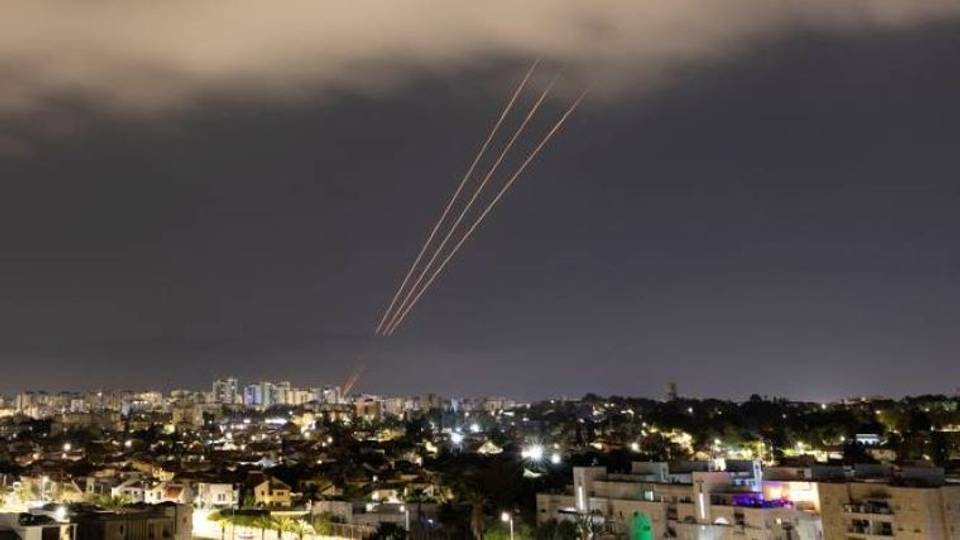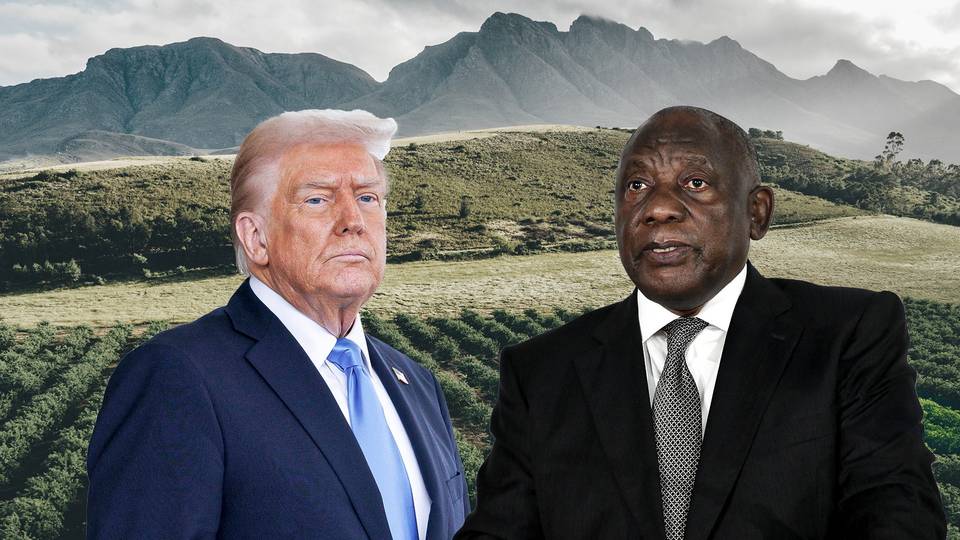Sport
Dollar
38,2552
0.34 %Euro
43,8333
0.15 %Gram Gold
4.076,2000
0.31 %Quarter Gold
6.772,5700
0.78 %Silver
39,9100
0.36 %Iran’s drone and missile attack on Israel has raised the possibility of a wider conflict. But it remains to be seen if Tehran is looking forward to such an escalation.

By Imran Khalid
In a striking turn of events, the Middle East once again finds itself at the epicenter of geopolitical tension as Iran's drone and missile barrage on Israel sends shockwaves across the region.
The retaliation, ostensibly triggered by Israel's targeted strike on an Iranian consular building in Syria, marks a departure from Iran's conventional playbook of proxy warfare.
Instead of resorting to chronic tactics of clandestine proxy warfare; Iran has struck Israel directly from its own soil, a move both surprising and provocative.
Yet, beneath the surface bravado, this attack appears more symbolic than substantial.
In the aftermath of Israel’s targeted strike in Syria that claimed the lives of seven Iranian commanders including Brigadier General Mohammed Reza Zahedi, Tehran’s retaliation seems more like a calculated display of strength than a genuine escalation.
Despite the fiery rhetoric, signs of de-escalation are very much on the horizon.
Iran’s conditional declaration to the UN soon after its retaliatory attack that the matter should be considered now “concluded”, coupled with the opening of airspaces by neighboring nations, suggests a signal for containment rather than conflagration.
However, Iran's recent display of “feeble aggression” has backfired and unwittingly emboldened Israeli hardliners, fueling calls for forceful reprisals.
Although Tel Aviv has pledged to retaliate against Iran's recent aerial assault, its plan is still shrouded in mystery. Instead of a full-throttle retaliation - because of serious opposition from Washington and other Western capitals, which can not afford an all-out war in the Middle East at a time when the flames of the Ukraine war are still raging - Israel may opt for a covert escalation, intensifying its shadow war against Iranian targets while minimising overt confrontation.
A covert escalation seems the less risky option, allowing Israel to intensify its shadow war while avoiding direct confrontation.
While Biden has affirmed his government’s unwavering support for Israel's security, he's also signaled reluctance to engage in an offensive operation against Iran.
This places Israel in a complex position where it has to balance its desire for retribution while sidestepping any move that can provoke a wider conflict.
At the same time, Iran has also waved the white flag. Iran has indicated that its attack on Israel has ended for now. “The matter can be deemed concluded,” Iran’s mission to the United Nations said on social media platform X.
This highlights the complex network of power dynamics in the Middle East, where aggressive posturing frequently masks a deeper, pragmatic calculation.
A battle for regional dominance
In this volatile landscape, every move is laden with a consequence, and the stakes have never been higher. The recent flare-up between Iran and Israel is but a chapter in the long-standing saga of their intricate rivalry.
This latest escalation, while seemingly rooted in regional tensions and the ongoing Gaza conflict, belies a deeper truth: the battle for dominance in the Middle East.
At the heart of this conflict lies the age-old struggle for power and influence, with Iran and Israel jostling for supremacy in a region rife with instability. Their shared disdain for Arab powers has forged an unlikely alliance of convenience, evident in their tacit cooperation following the 2003 US invasion of Iraq.
This pivotal moment reshaped the regional landscape, granting Israel nuclear hegemony while bolstering Iran's sway over Baghdad. However, the veneer of cooperation masks a fundamental divergence in interests.
For Israel, maintaining its nuclear monopoly is paramount, driving efforts to stifle Iran's nuclear ambitions at any cost. Conversely, Iran views nuclear armament as a strategic imperative.
As tensions simmer and drones fill the sky, the Middle East certainly teeters on the brink of a perilous precipice, where the quest for supremacy threatens to plunge the region into chaos.
In this high-stakes game of power politics, the consequences of failure are too grave to contemplate. For Iran, preserving its nuclear infrastructure will be its top most priority.
That is why, despite launching a barrage of missiles, the Iranian regime, keenly aware of the catastrophic consequences of a direct confrontation with Israel, is treading cautiously to avoid providing pretext for military intervention. Iran carefully staged this rather feeble attack to avoid any civilian or military damage so as to preempt the possibility of any immediate and severe reaction from Israel, which could have aggravated the situation
The preservation of its nuclear facilities, crucial to its long-term ambitions, dictates a measured response calibrated to avoid escalation.
Additionally, Tehran acknowledges the delicate diplomatic maneuvering it must engage in on the world stage, mindful of the ongoing backdoor discussions with US President Joe Biden’s administration.
The prospect of reverting to the 2015 nuclear accord depends heavily on upholding a degree of stability in the region, as any escalation of tensions could jeopardise ongoing diplomatic endeavors.
Amidst these complexities, Iran is walking on a perilous path, cognisant of the ever-present threat of US intervention in defense of its Israeli ally. Iran finds itself in a precarious position, caught between the rhetoric of defiance and the harsh realities of geopolitical power dynamics.
Despite its bluster, Tehran is acutely aware of the futility of engaging in a direct military confrontation with the combined might of the United States and Israel.
Its approach is guided more by caution as it maneuvers through a tangled network of strategic factors. The Iranian regime understands the potential repercussions of exacerbating tensions amid the Biden administration's warnings.
Moreover, Iran's calculations extend beyond mere military capability, factoring in broader geopolitical dynamics.
Sensitivity to international opinion, particularly regarding Israel's actions in Gaza, denotes Tehran's diplomatic maneuvering to avoid alienating potential sympathisers.
Ultimately, Tehran's strategic calculus revolves around preserving its own interests while managing the shifting sands of regional dynamics.
In a volatile landscape fraught with uncertainty, caution emerges as the guiding principle for Iran's policymakers. The dynamics surrounding Iran's recent provocations reflects the intricate interplay of power and pragmatism.
Both Russia and China, mindful of their own strategic interests, have conveyed a clear message to Tehran: the risks of direct conflict far outweigh any potential gains. With a keen eye on their respective economic and strategic imperatives, both powers are exhibiting a palpable reluctance towards any prospect of further flare up of the Iran-Israel conflict. Central to their calculus is a desire to safeguard their mutual interests in the larger Middle East canvas.
Their reluctance to be drawn into a global conflagration is a calculated restraint aimed at safeguarding their economic and geopolitical stakes.
Yet, amidst the cacophony of competing interests and shifting alliances, the specter of conflict looms large, casting a shadow of uncertainty over the volatile landscape of Middle Eastern geopolitics. In this high-stakes game of brinkmanship, the margin for error is very slim.
The author, Imran Khalid, is a Karachi-based commentator on geopolitical issues. His columns have been widely published by international news organisations.
Disclaimer: The views expressed by the author do not necessarily reflect the opinions, viewpoints and editorial policies of TRT Afrika.
➤Click here to follow our WhatsApp channel for more stories.
Comments
No comments Yet




















Comment